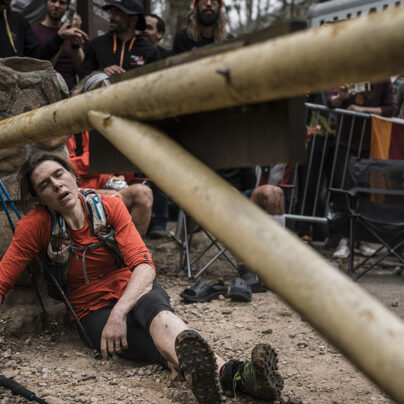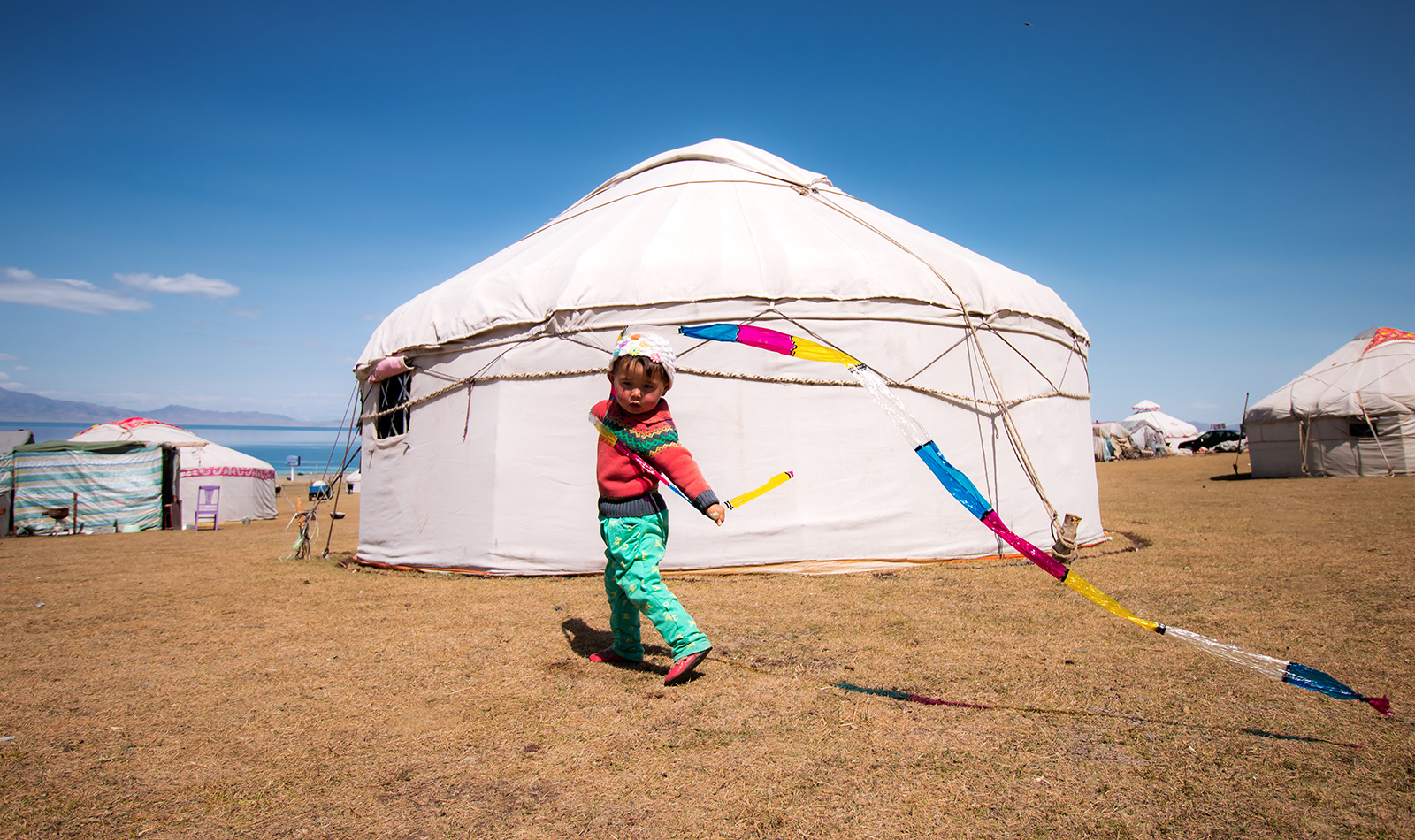Apparitions of Northwest China
Will Julian
Like most adventures, the concept for my motorcycle journey around China’s rugged northwest was born far away, in an oasis of art museums, corporate skyscrapers, and glamorous Beijing nightlife. The pattern is always the same: for every few weeks I spend roughing it on the open road, I spend months beforehand plotting routes in cafés with fast enough internet to support my Google Earth habit. After the journey ends and I return safely home, I begin to edit photos into a reconstructed narrative on my computer.
Perhaps it was the sense that my daily routine in Beijing was becoming too repetitive that led me to dream of forging out across some new frontier. Initially, I would flick away my afternoon office boredom by remembering that other China – the China of sweeping sand dunes that stretched across the horizon, glowing golden in the Central Asian sun. These were the montages that stuck in my mind from the two years I had lived in the Xinjiang Uyghur Autonomous Region, 1600 miles northwest of my Beijing office.
My cubicled existence in Beijing was becoming increasingly stifling, with my body growing weary of pressing against other bodies in subway cars, on buses, and in crowded alleyways as if being compelled to blend with the humid, impersonal flux of urban life. As I slept behind closed windows and closed curtains – barriers against the thick smog and noise of summertime Beijing – I dreamt of lying once again beneath the stars on the open plains, listening to the cooling Central Asian wind rush across Kazakhstan and into Xinjiang.
I had only a month left on my Chinese visa, so I left Beijing for Xinjiang. As the airplane lifted off of the grey day, I attempted to trace the outlines of the inscrutable city that I had come to love, in spite of its downsides. I would miss this China: the old couples that danced to pop music under a highway overpass outside my office every morning; the gleaming subway cars that shuttled trendy youths across the city; the hutong (alleyway) shopkeeper who handed me my Belgian beer; and the wizened souls who carried their grandchildren to the park every evening. It was the elder generation that stood out for me: they had endured uncounted hardship in their lifetimes, but today they were the tender and steadfast guardians of the idea that life would be better for their progeny.
Four days later, I was riding my motorbike swift and unbound through the Tianshan Mountains. No longer was my movement regulated by subway tracks or office walls. No longer were my thoughts interrupted by the noise of Beijing’s streets. Instead I could focus solely on the internal pleasure of my hand pulling against the throttle of my motorbike.
Four days later, I was riding my motorbike swift and unbound through the Tianshan Mountains. No longer was my movement regulated by subway tracks or office walls.
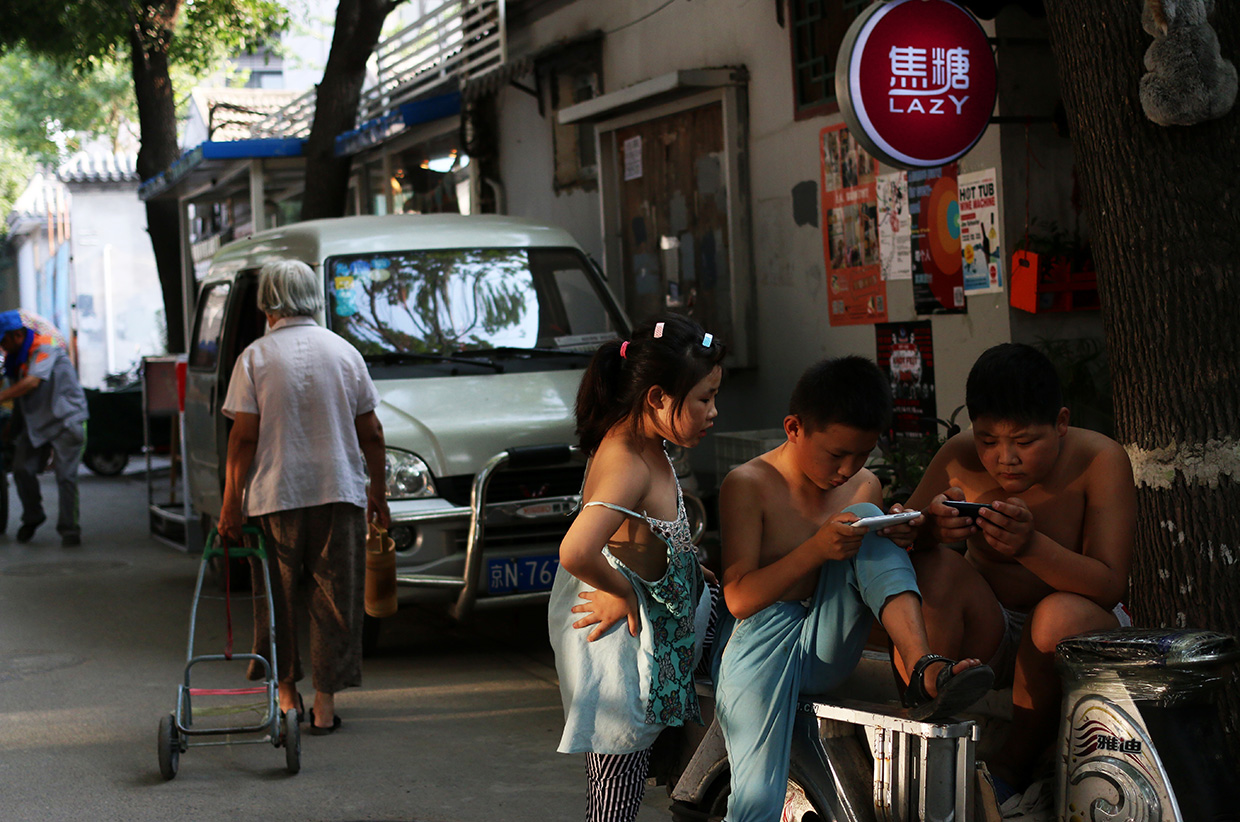
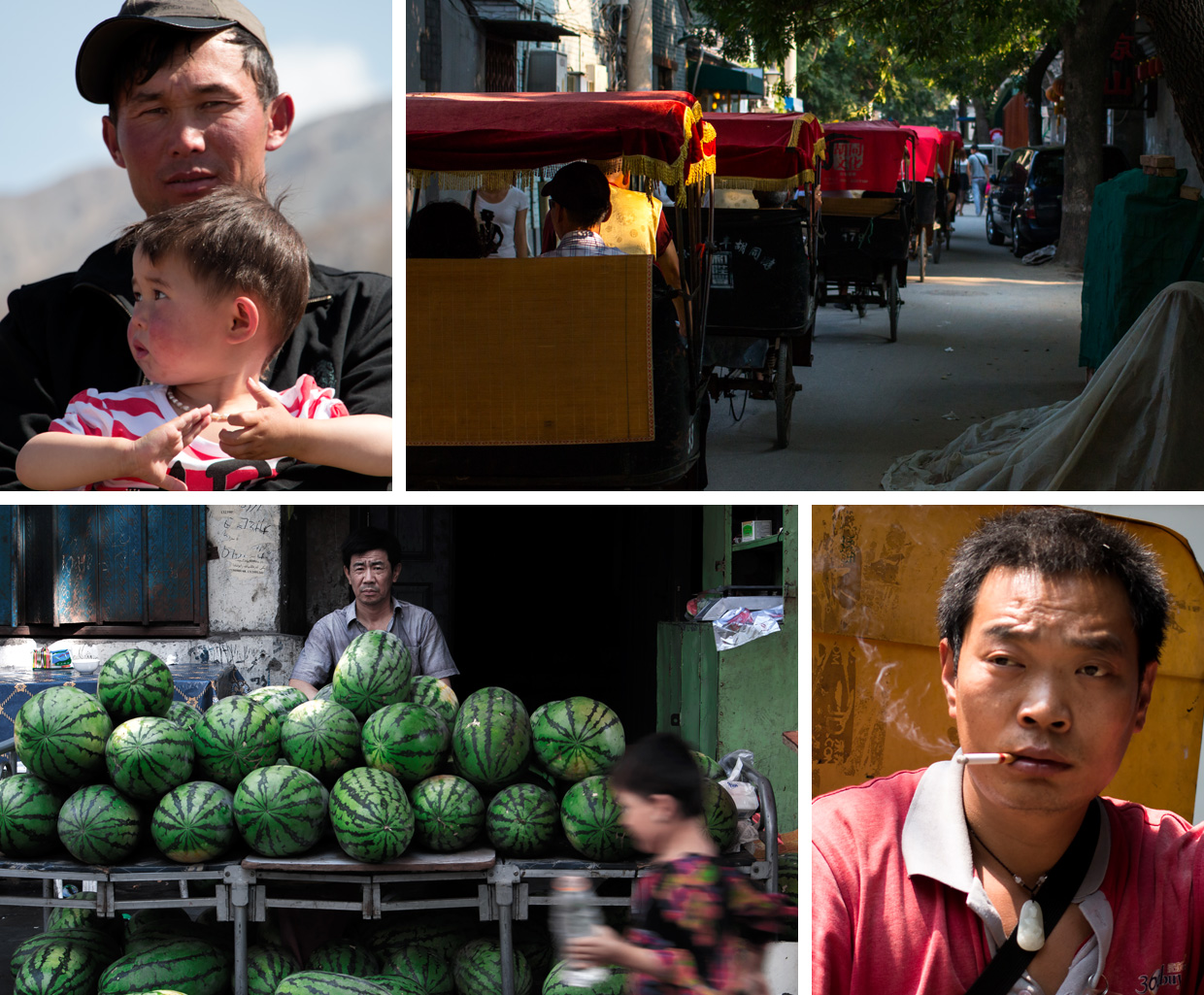
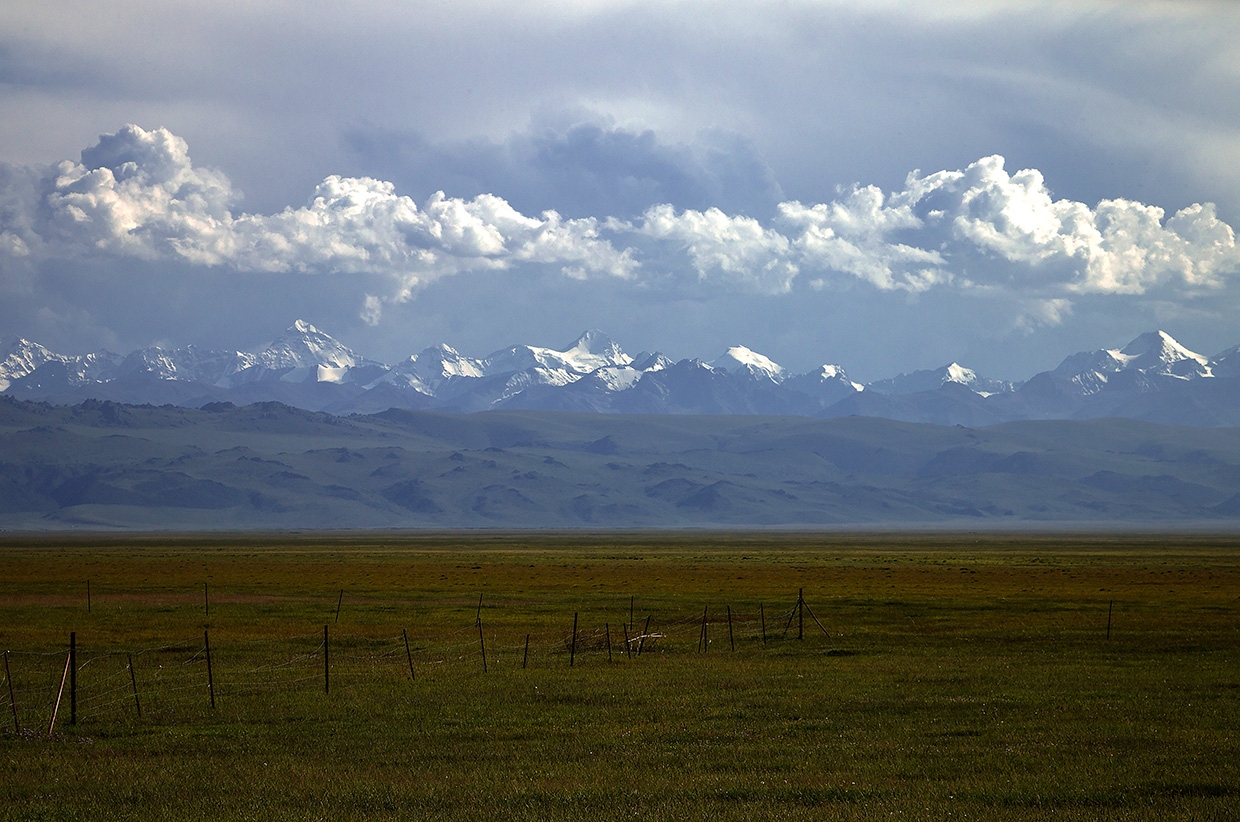
Altitude sickness began to wrap its nauseous fingers around my stomach; I knew that I needed to descend as fast as possible. I focused my thoughts, clenched my teeth, and swore to myself that I would make it down the mountain.
My route would take me on a loop around the northern arm of the imposing Tianshan range, a 1240-mile journey through the region’s most iconic ethnic minority areas. I hadn’t ridden a motorcycle for over a year, and had forgotten how stressful looking out for hazards could be. In Xinjiang, these included daredevil helmet-less motorcyclists, trucks carting coal from the alpine interior, four-wheel drives, goats, tractors, horsemen and the occasional camel. Many of the roads were more dilapidated than my maps and hearsay had suggested, but the rewards were great: as I gained altitude, the decadent landscapes became more and more beautiful.
As the morning wove into afternoon, I rode a gravel road towards a glacial mountain pass, 4,300m above sea level. But as I approached the pass, it began to hail, and I was forced to take refuge in a Kazakh yurt, laying my pseudo-waterproof clothing out to dry next to the coal-burning stovetop. My host was a burly man with taut crimson skin that suggested he had witnessed thousands of such summer storms, so I asked whether he thought I’d be able to cross the pass safely that day. He paused, staring through the yurt entrance to study the hail. After several minutes of contemplation, he delivered his verdict: no, he did not think I’d be able to cross safely.
However after a few hours, there was a break in the weather and I decided to press on, hoping it would hold. It did not. Just a mile into the nine-mile descent, a storm arrived, pouring across my helmet and drenching me in near-freezing rain. I noticed crunched corpses of tractor trailers lying prostrate alongside the steep pitch of the rock face: the final resting place for both machine and operator. It made me feel acutely aware of my own human fragility.
When I lost the sensation in my hands, I realised there was no time for poetic musings: I was now in a life-threatening scenario. Altitude sickness began to wrap its nauseous fingers around my stomach; I knew that I needed to descend as fast as possible. I focused my thoughts, clenched my teeth, and swore to myself that I would make it down the mountain. After seven frenetic miles of hairpin turns and washed-out mud roads, the storm slowly began to abate, and I climbed off my motorcycle to warm my hands on the engine. Then, I paused to look at the landscape. I have never seen anything more beautiful than the quiet scene in front of me at the bottom of that desolate mountain, as the indifferent fog rolled across the soaked, green hills.
I climbed back aboard the bike and continued on. Several hours later, with my body still thawing from the descent, I stumbled upon an unassuming small village. Exhausted, I decided to stay the night in a dingy guestroom at the back of a family restaurant. The proprietors, an introverted but gracious middle-aged Han couple, had been operating the ad hoc hostel for the last ten years.
That evening two friendly Mongol men in their early twenties invited me to join them for a meal of lamb with carrots, which we washed down with generous bowls of beer. The men kept asking me if I could introduce them to an American equine trainer because they wanted to purchase a US stallion to breed with one of their mares. I didn’t know any horse trainers but I played along, not wanting to ruin their dream of running a horse-breeding programme that combined the physicality of American horses with the ‘indomitable spirit’ of Mongol horses.
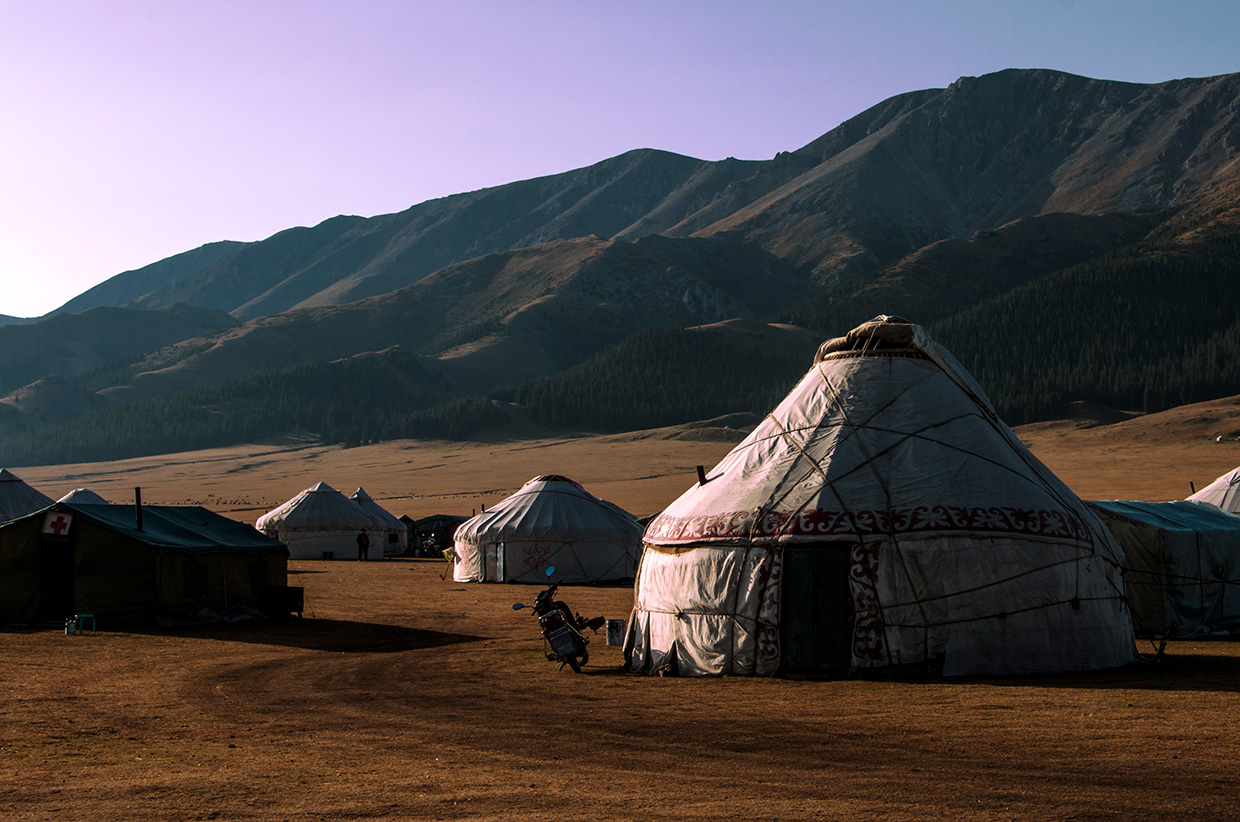
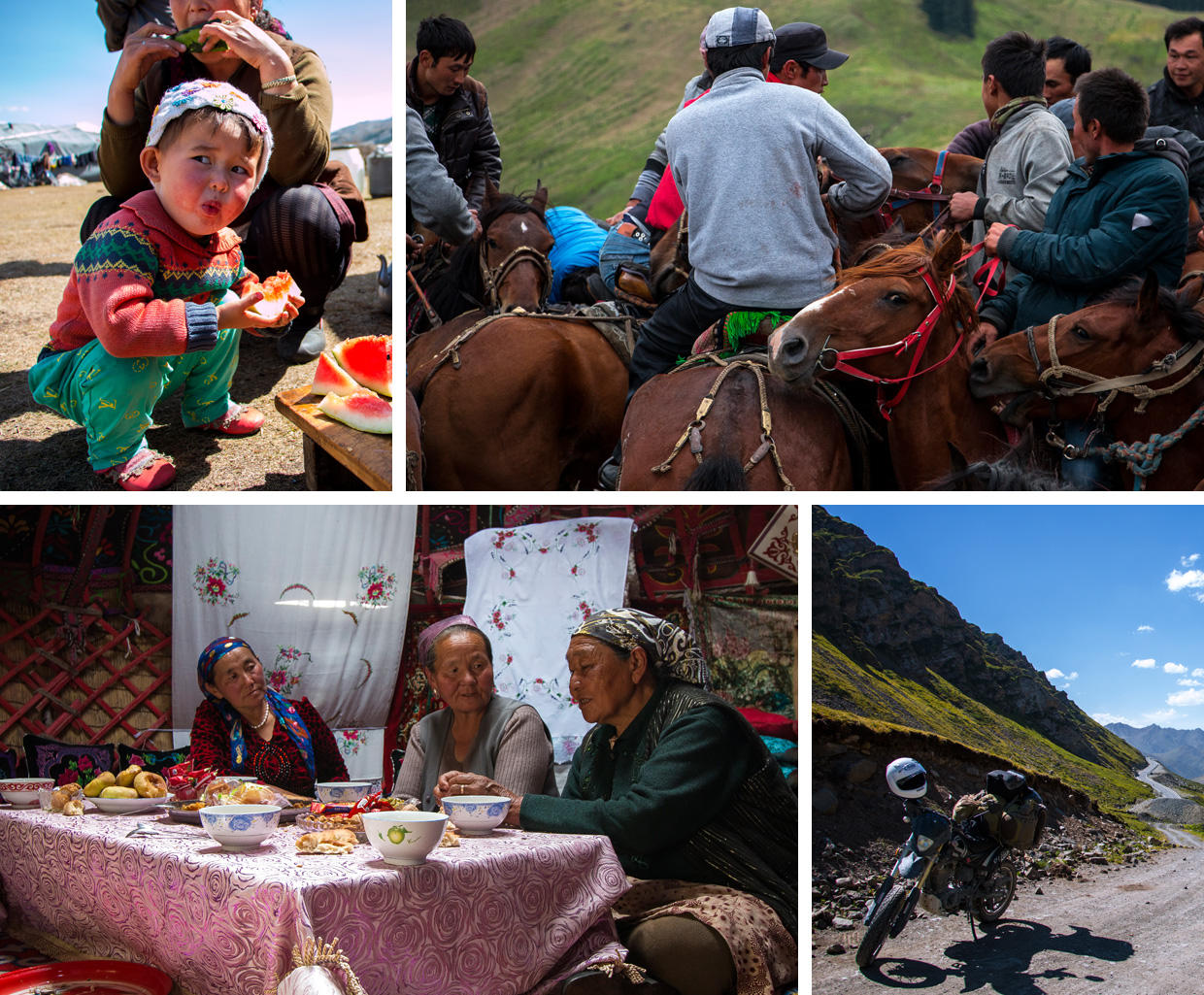
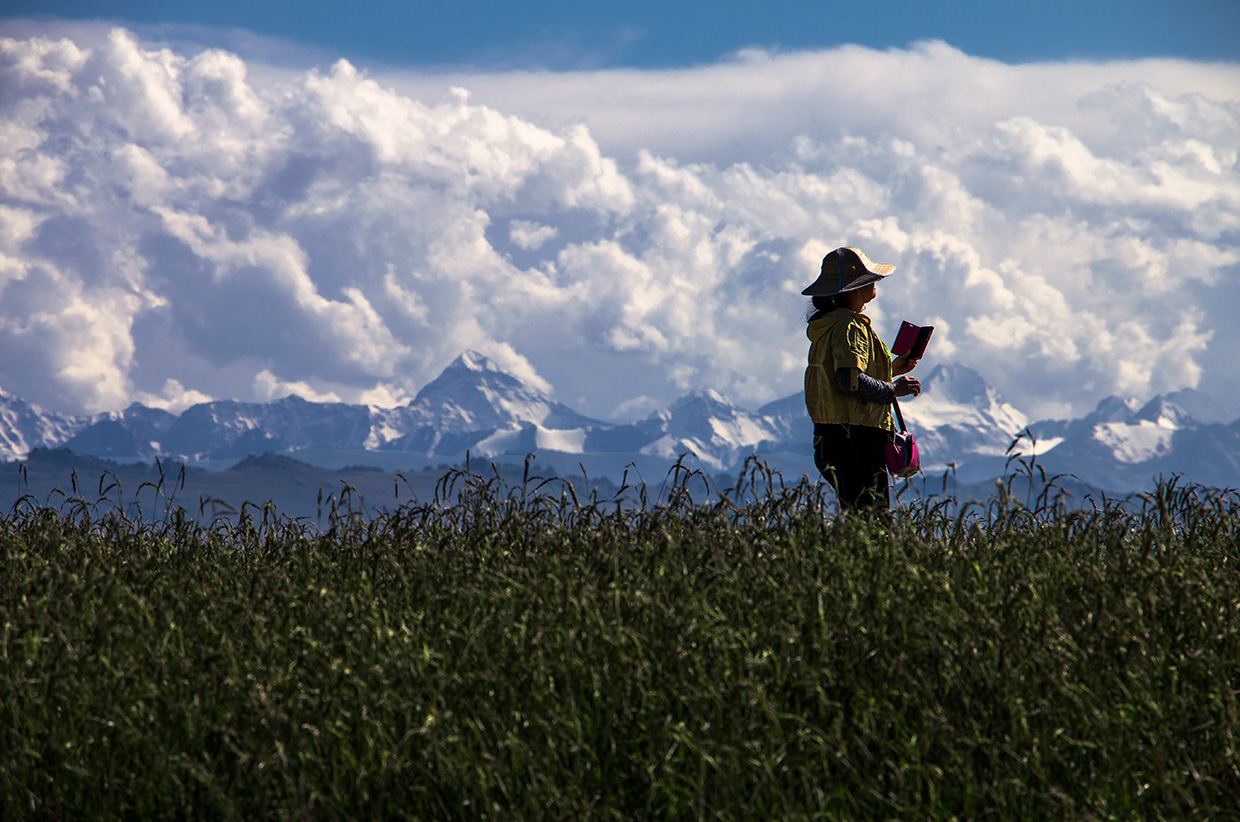
Once all the beer bottles had been drunk, I decided to go to bed. I stumbled back into my dank, concrete bedroom and imagined my companions making their way back to the felt yurts that stood in the foothills somewhere in the dark distance. But just a few minutes later, a commotion erupted in the restaurant next door. Nervous about getting caught up in a fight in a rural area that was technically off-limits to foreigners, I rushed around the back of the building and looked in through the window.
Inside, Nergüi, one of the men I had been eating with, looked wide and imposing. His hands were tensed into fists, there was sweat on his forehead, and his eyes burst with fury as he stared at a group of four Han Chinese men. ‘You filthy tourist bastards,’ he screamed in Mandarin, ‘Get the hell out of my village!’ The frazzled men stood in disarray, their eyes running around the room seeking some explanation for this outburst. Batbayar, my other dinner companion, was standing quietly in the doorway a few steps from Nergüi, looking on with indifference.
As other men in the room attempted to deflate the situation, at first in soothing tones, and then more aggressively, Nergüi menaced his body forward, stopping a couple of metres in front of the men. He kept moving back towards the door and then turning and charging forward, shouting threats at them. Each time he did this, he would stop just short of attacking them. After several minutes of this ‘shadowboxing’, he grabbed a wooden chair and hurled it across the room. Thankfully, the wood splintered a safe distance from where the shocked visitors were standing.
Afterwards, Nergüi stood triumphant, content with the horror that he’d pulled from the visitors’ faces. He hadn’t hurt them, but that was irrelevant – the men were merely stand-ins, surrogate Han souls that he had broken for that instant, shattering the imperial Chinese phantom that besieged his identity as a Mongol.
It appeared that Nergüi was not trying to inflict physical pain on this unsuspecting group of tourists, but rather to scare them and thus to have momentary superiority over them, becoming an avatar of what his conquering Mongol ancestors must have felt. I have never seen anyone so filled with rage.
Nergüi and Batbayar left the room, and then climbed on their motorbike. The engine roared to life and, for a brief moment, I could make out a look of serenity on their faces. A moment later, their tail light dissipated into the dark night.
I went for a walk under a vivid patchwork sky full of stars that burned too bright to be bound by anything. I realised the space that I had craved from my cubicle in Beijing didn’t really exist; or rather, it existed only for foreigners like me. The undisturbed vastness of the open plain, the Xinjiang that I had dreamed of and loved, was just a fantasy.
Will Julian was a Princeton-in-Asia teaching fellow in China’s Xinjiang Uyghur Autonomous Region from 2011 to 2013. During this time he taught English Poetry to Chinese undergraduates; consumed camel’s milk, Kung Pao chicken and lamb kebabs; and traversed grasslands, deserts and mountain ranges.
In the past, Will has been a Smithsonian Magazine featured photographer, and his nonfiction has been published on The Airship. In the fall, he will begin a Master’s in Anthropology at Columbia University, where he will research the influence of urbanization and tourism on nomadic identity in Western China.
Instagram: @aeolian_lyre
Website: williamjulian.com


